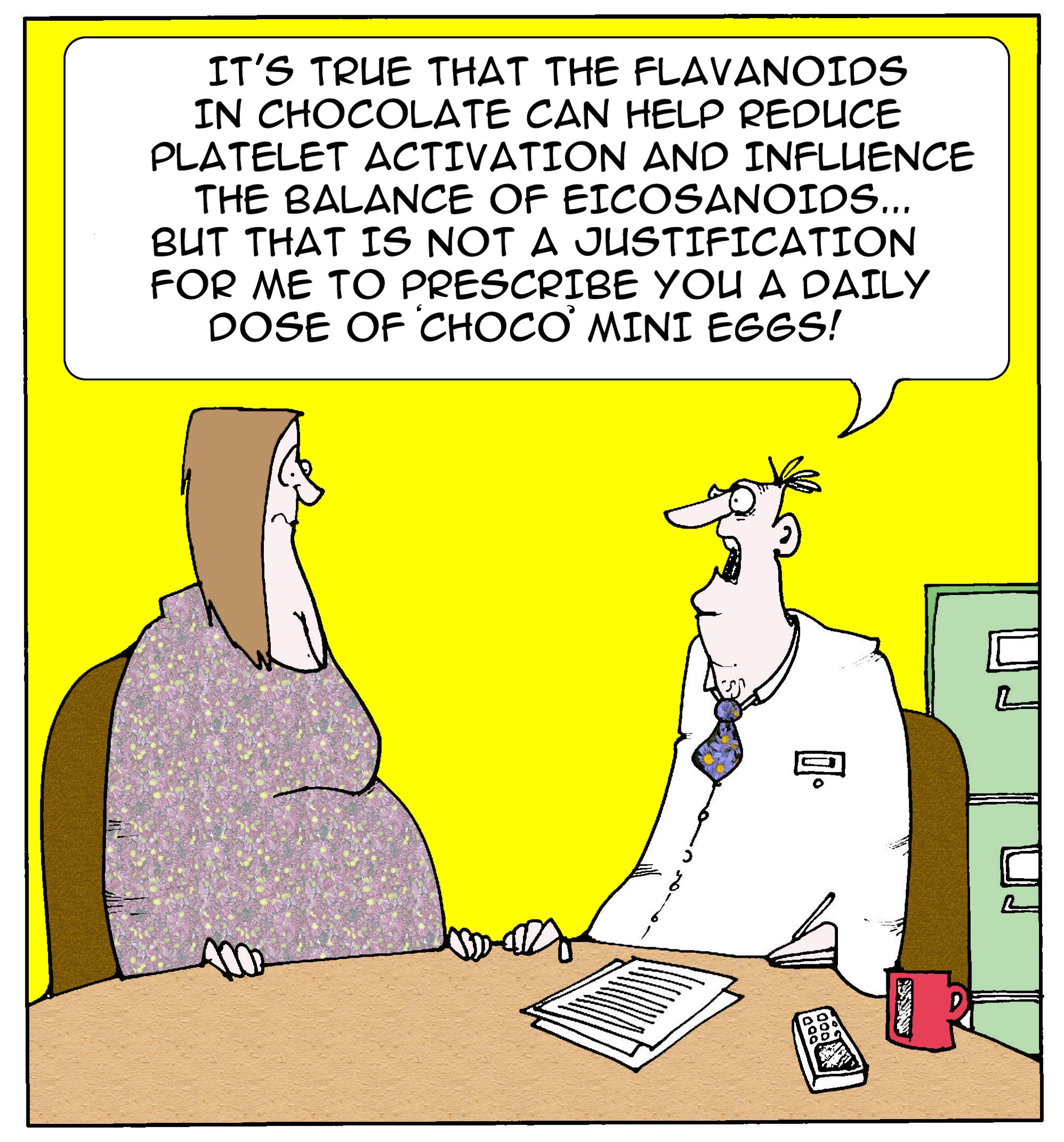Trick or… chocolate and memory!
Credit: Mars Chocolate, Hackettstown
Trick???? Or, Treat?????
Got chocolate on your minds today? Before you raid the candy bowl or your children’s haul for the evening, you may want to consider the following:
Halloween chocolate is not going to improve your memory.
I know! It was all over the news.
And, while it is true that study findings appearing last Sunday in the online edition of Nature Neuroscience demonstrated that dietary cocoa flavonals — natural compounds that are found in cocoa –reversed age-related memory decline in 37 people between the ages of 50 and 60, the media didn’t pain the entire story.
The findings…when the researchers administered brain imaging and memory tests to the volunteers given a drink containing 900 mg flavonals, they saw noticeable improvements in both the function of the region of the brain critical to memory (called the dentate gyrus) and in the ability to recognize and recall patterns. They explained that if a person had the memory of a 60-year-old at the beginning of the study, after three months, memory improved to that of a 30-year old.
Pretty cool!
However, here’s the rub: the product used in the study is not the same as commercially-available chocolate; in fact, cocoa flavonals are only found in very small amounts in average chocolate bars. To realize any similar benefits, you’d need to eat about seven dark chocolate bars or 100 grams of baking cocoa daily. And, the study authors say that the amount of flavonals vary depending on processing.
An alternative way to improve memory and dentate gyrus function, at least in younger people, is exercise.
So, the idea that Halloween candy will improve your memory is simply a trick. If you want this treat, you’ll need to look away from the candy bowl!
Read MoreLoco for cocoa – chocolate and your heart
 Last June and August, I wrote about the link between eating chocolate and improving heart health. Briefly, researchers have long been interested in flavonoids and in particular (at least in so far as menopause goes) in isoflavones. (See soy posts for more on isoflavones). The specific compound or molecule of interest in cocoa (the non-fat component cocoa bean extract or liquor) are flavanols, which are also found in lower concentration in apricots, peaches, apples, green and black tea, red wine and cider). Note that the quantity of flavanols in chocolate depends on manufacturing, including fermentation and roasting, and how much treatment is given to reducing bitterness and improving consistency. What this means is that dark chocolate has the highest concentration of flavanols and milk, the lowest.
Last June and August, I wrote about the link between eating chocolate and improving heart health. Briefly, researchers have long been interested in flavonoids and in particular (at least in so far as menopause goes) in isoflavones. (See soy posts for more on isoflavones). The specific compound or molecule of interest in cocoa (the non-fat component cocoa bean extract or liquor) are flavanols, which are also found in lower concentration in apricots, peaches, apples, green and black tea, red wine and cider). Note that the quantity of flavanols in chocolate depends on manufacturing, including fermentation and roasting, and how much treatment is given to reducing bitterness and improving consistency. What this means is that dark chocolate has the highest concentration of flavanols and milk, the lowest.
What have researchers learned so far?
- Flavanols found in cocoa and cocoa powder may be powerful antioxidants and as such, help to mitigate certain factors that contribute to atherosclerosis, such as the formation of plaques in the arteries that lead to stroke and other coronary events. Thus, as antioxidants, they may actually neutralize toxic oxygen species circulating in the bloodstream.
- Experimental data suggest that ingestion of flavanols may help to regulate proteins and other compounds that encourage an inflammatory response to leads to heart disease.
- Flavanols may also help to stabilize the lining and muscular tone of the arteries and prevent them from narrowing.
- Additionally, flavanols may moderately protect against high blood pressures, although studies have been mixed.
- Finally, flavanols may help to maintain blood sugar levels and improve the ratio of good to bad fats in the blood.
However, while numerous studies suggest that chocolate may benefit the heart, less clear is whether or not a causal relationship exists. Still, the idea is attractive enough that researchers continue to delve into the potential benefits of functional foods containing flavonoids and in flavonols found in dark chocolate. This time, writing in the journal Appetite, they report on a newly published study that examined the effect of eating flavonoid-rich dark chocolate on a process called oxidative stress, in which the ratio of circulating oxygen free radicals to circulating antioxidants is imbalanced (free radicals are those nasty, unstable molecules or atoms that can wreak havoc and lead to disease, including heart disease, diabetes and high cholesterol).
Over a period of three weeks, 25 healthy men and women were asked to eat 50 g of dark chocolate daily. The women in this particular study were premenopausal, primarily because use of hormone replacement has been shown to modify oxidative stress that has been attributed specifically to LDL (low density lipoprotein, also known as the bad cholesterol). They also omitted any other cocoa products from their diet and tea, red wine and other drinks that were rich in antioxidants.
Not only did eating dark chocolate daily have no impact on body mass index or the subjects’ weight, but it significantly increased the percentage of HDL (high density lipoprotein or good cholesterol) and led to a significant declines in blood fats levels as well. Dark chocolate consumption also appeared to lower markers of oxidative stress and damage to good fats in cells by almost 27% in women in the study, indicating a favorable effect on LDL, a change that was not similarly observed in men. This suggests that eating dark chocolate could possibly benefit women more than men, at least in terms of the heart. And, while menopausal women were not studied, the researchers say that the protective role of dark chocolate could possibly be especially favorable during menopause, when waning levels of estrogen make women particularly sensitive to oxidative damage and heart disease.
As with similar studies, we still don’t have a definitive cause and effect. However, a little dark chocolate has the potential to go a very long way.
Read More







